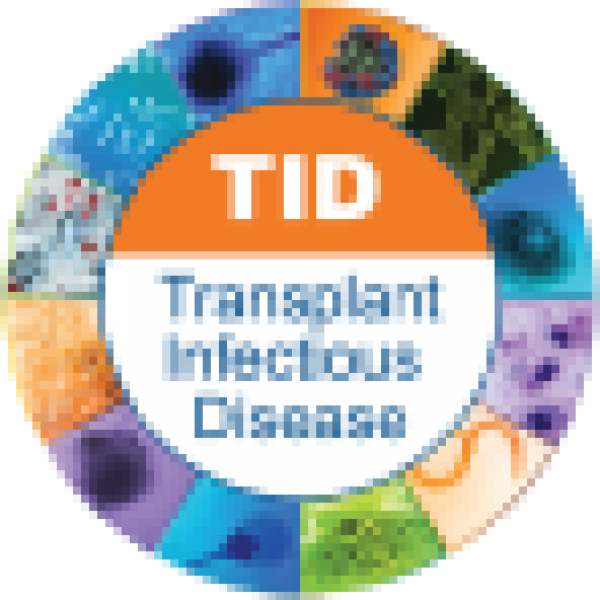
Dear Colleagues,
On behalf of Transplant Infectious Disease (TID) we would like to encourage you to participate in our 2025 Election.
To be eligible to vote you must be a Full or Emeritus member of TID.
TID seeks to achieve a Council that has gender and geographical balance in proportion to our membership.
Elected candidates will begin their term at the biennial TID Virtual Business Meeting taking place on Thursday September 25, 2025 at 8:00AM (EDT)
To cast your ballot:- Log in to your account
- Prior to accessing the ballot you may view photos and biographical sketches of each nominee on this page.
- Click the button below and complete your ballot according to instructions
Deadline to vote:
Sunday May 11, 2025 at 23:59 EDT
Thank you for being an active member of TID and we look forward to sharing the results of our election in September 2025.
Sincerely,
John Baddley
TID President
Nominees
President-Elect (running unopposed)
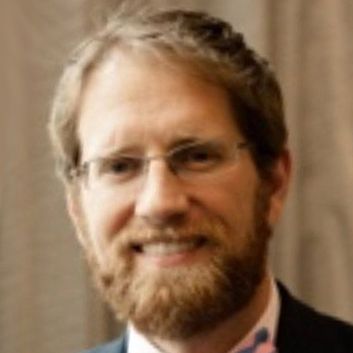

Cameron Wolfe - United States
Cameron Wolfe, MBBS, MPH is a Transplant Infectious Disease physician based in the United States, at Duke University. Cameron was trained in Australia before moving to Duke in 2007, where he holds the rank of Professor of Medicine. Clinically, Cameron has interests in solid organ and bone marrow transplant and researches clinical and pharmacologic management of respiratory viruses, hepatitis and HIV in transplantation. His particular interest is in finding ways to expand donor options by using donors living with active infectious diseases, such as HIV, COVID or viral hepatitis. He was a previous chair of the UNOS Disease Transmission Advisory Committee, in the United States, and a previous Director on the Board for UNOS/OPTN. Cameron led the Covid management at Duke University and continues to oversee vaccination programs for staff and patients at the University. He teaches undergraduate and medical classes at both Duke University and The University of North Carolina, Chapel Hill. In his spare time, Cameron has become one of the scout masters for his 8, 10yr old boy's Cub Scout troop.
Secretary/Treasurer (running unopposed)
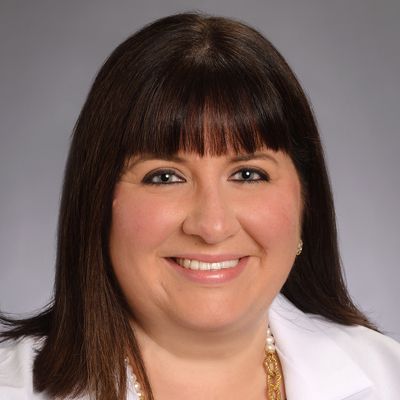

Stephanie Pouch - United States
Dr. Pouch received her M.D. from the Temple University Lewis Katz School of Medicine in 2007. She completed Internal Medicine internship and residency at the University of Chicago and served as a Chief Medical Resident at the John H. Stroger, Jr. Hospital of Cook County in Chicago. She then completed a fellowship in Infectious Diseases at Columbia University Medical Center and received a Master of Science in Biostatistics from the Columbia University Mailman School of Public Health. Dr. Pouch joined the faculty of Emory University School of Medicine in 2017, where she serves as the Director of Transplant Infectious Diseases. She is also Associate Medical Director of LifeLink of Georgia. Her clinical and research interests include donor evaluation and management, donor-derived infections, and the epidemiology and management of multidrug-resistant organisms in solid organ transplantation, including their impact on patient and graft outcomes. She currently serves as Chair of the Organ Procurement and Transplantation Network Disease Transmission Advisory Committee, Co-Chair of the American Society of Transplantation Infectious Diseases Community of Practice’s Donor Evaluation and Management Working Group, and Medical Advisor-Elect to the Association of Organ Procurement Organizations. She is also a North American Councilor for the Transplant Infectious Diseases Section of The Transplantation Society, a member of the European Society of Clinical Microbiology and Infectious Diseases (ESCMID) and ESCMID Study Group for Infections in Compromised Hosts (ESGICH), an Associate Editor of the Transplant Infectious Disease Journal, and is a previous Chair of the International Society for Heart & Lung Transplantation’s Infectious Diseases Professional Community.
Councilor - North America (Choose 1)
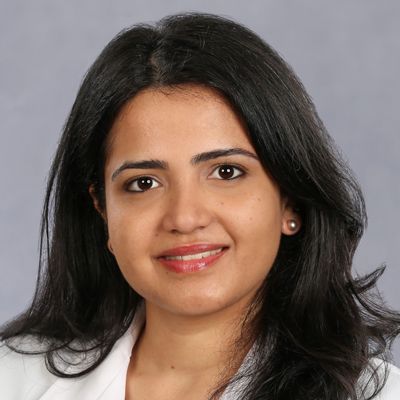

Shweta Anjan, United States
Dr. Shweta Anjan, M.D., FIDSA, is an Associate Professor in the Division of Infectious Diseases at the University of Miami Miller School of Medicine. She completed her medical education at Kasturba Medical College Manipal in India, followed by an Internal Medicine Residency at the University of Pittsburgh Medical Center. She then pursued specialized training in Infectious Diseases and Transplant Infectious Diseases through fellowships at the University of Miami - Jackson Memorial Hospital, where she now serves as faculty.
As the Program Director for the Transplant Infectious Disease Fellowship, Dr. Anjan is deeply committed to medical education, mentoring, and fostering the next generation of transplant ID specialists. Her clinical and research interests focus on improving outcomes in transplant recipients with a focus on fungal and parasitic infections.
Dr. Anjan is an active member of the Infectious Diseases Society of America (IDSA), contributing to the medical education and mentoring & recruitment committees. She also serves as the Education Chair for the AST Trainee & Young Faculty Community of Practice. Through her leadership, she aims to enhance educational initiatives and foster collaboration between AST and TTS trainee and young faculty groups.
As a Transplant Infectious Disease Councillor for North America, Dr. Anjan seeks to advocate for the field, strengthen professional networks, and advance education and research in transplant infectious diseases.
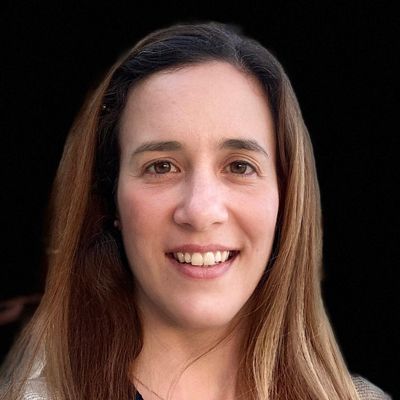

Sara Belga, Canada
Sara Belga, MD, MPH is a Clinical Assistant Professor in the Division of Infectious Diseases at the University of British Columbia (UBC) and a consultant at BC Transplant, Canada. She earned her medical degree from the University of Lisbon in 2007 and later resumed her medical training in Canada, completing Internal Medicine (2015), Adult Infectious Diseases (2017), and Transplant Infectious Diseases (2019) at the University of Alberta.
Dr. Belga was elected as an Early Career Member of the AST Infectious Diseases Community of Practice (ID COP) Executive Committee (2020-2021) and remains an active member of the ID COP Transplant ID Online Library Working Group. Since 2021, she has served as Director of the Transplant Infectious Disease Research Program at UBC, where she has established key research collaborations across Canada, the United States, and Europe.
In 2023, she earned a Master of Public Health from the Bloomberg School of Public Health at Johns Hopkins University. She is a Scientific Advisory Board member for the Organ Donation and Transplant Research Foundation of BC and has contributed to research project reviews for the TID Section Research Committee.
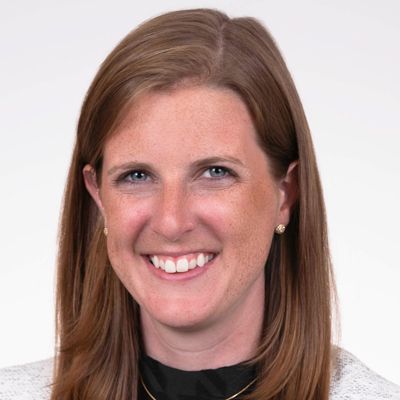

Courtney Harris, United States
Courtney Harris, MD, FACP, is a transplant infectious disease physician and Assistant Professor of Medicine at the Medical University of South Carolina (MUSC) in Charleston, SC, where she serves as the Program Director of the Transplant Infectious Diseases (TID) Fellowship, Director of the Cardiac Transplantation Infectious Diseases, and Director of the Medical Student Elective/Selective in Infectious Diseases. She has an extensive record of service in organized medicine and leadership experience, including 4 years of service on the Minnesota Medical Association Board of Trustees, the National Council of Resident and Fellows of the American College of Physicians, and currently serves on the American Society of Transplantation ID Community of Practice (COP) Executive Committee. Her clinical excellence and leadership have led to several awards from her training programs, the Zumbro Valley Medical Society's Outstanding Young Physician Award, the Massachusetts Infectious Disease Society's Kass Award for Clinical Excellence, and the MUSC Department of Medicine Outstanding Junior Faculty Clinician Educator of the Year Award. She has published widely and presented nationally on a variety of topics in TID, including TID program development, education and career development, fungal infections, babesiosis, and infections in patients living with LVADs.
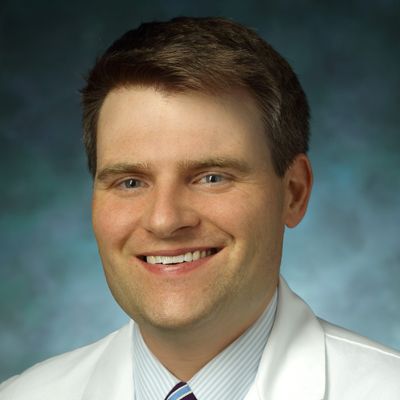

Andrew H. Karaba, United States
Andrew Karaba MD PhD is an Assistant Professor of Medicine in the Division of Infectious Diseases and Associate Director of basic/translational research in the transplant research center at Johns Hopkins University School of Medicine in Baltimore, MD. He received his B.A., M.D., and Ph.D. from Northwestern University. He earned his Ph.D. focusing on how herpes simplex virus entry receptors contribute to pathogenesis. He completed residency in Internal Medicine and fellowship in Infectious Diseases at Johns Hopkins where he joined the faculty in 2021. His research focuses on understanding immunity to viruses that commonly impact immunocompromised individuals including HSV, CMV, SARS-CoV-2, and RSV. His research has contributed substantially to our knowledge of how immunosuppression impacts the immune response to novel respiratory viral vaccines. He sees patients as part of the transplant and oncology infectious diseases consultation service and is a member of the Johns Hopkins COVID-19 therapeutics guidance committee. He served on the TID/TTS conference planning committees in 2022 and 2024, and he currently serves on the TID research subcommittee. He is excited for an opportunity to continue to serve this great organization in a new role.
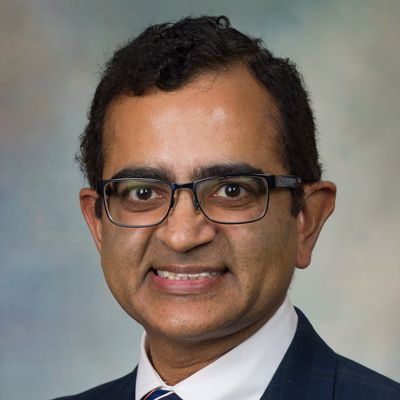

Holenarasipur (Vik) Vikram, United States
Dr. Holenarasipur (Vik) R. Vikram, MD, FACP, FIDSA is a Professor of Medicine, Mayo Clinic Alix School of Medicine. He is the Medical Director, Transplant Infectious Diseases for the Mayo Clinic Arizona Transplant Center.
Dr. Vikram has over 20 years of clinical experience caring for transplant recipients with complex infectious diseases. He has been involved in several donor-derived cluster investigations with resulting publications (West Nile Virus, MTB, HHV-8, COVID-19, Coccidioidomysosis, T. cruzi, and LCMV). Largest cohorts of brain abscess and neuroinvasive WNV in solid organ transplantation have been recently published. Dr. Vikram has extensive experience in the management of coccidioidomycosis in solid organ transplantation.
Dr. Vikram has served as Vice-Chair, Division of Infectious Diseases, and Associate Chair for Education - Department of Medicine. He started the Infectious Diseases Fellowship Program and served as the inaugural Program Director for 10 years. He is a former Vice-Chair of the Education Committee and member of Graduate Education Committee.
Dr. Vikram was the recipient of the 2019 Keith A. Kelly Distinguished Educator of the Year award which recognizes senior Mayo Clinic colleagues who have demonstrated excellence, leadership, and professionalism in education throughout their career. He was inducted into the Mayo Clinic Academy of Educational Excellence at the Legacy Level in 2021.
Councilor - Europe / Asia / Oceania (Choose 2)
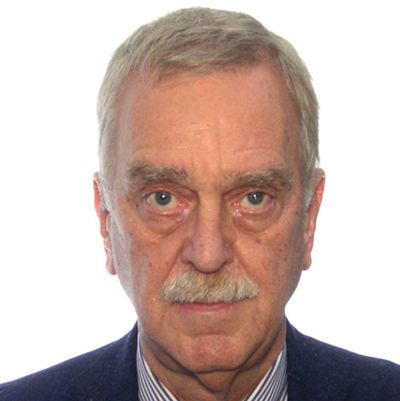

Paolo Grossi, Italy
Paolo Grossi is Professor of Infectious Diseases at the School of Medicine of the University of Insubria, Varese, Italy. From February 2001 he is the Director of the Infectious and Tropical Diseases Unit of the ASST-Sette Laghi of Varese, Italy.
His main field of research is on infections in immunocompromised patients. Starting from 1999 he is the advisor for all infectious diseases related problems at the Italian National Centre for Transplantation in Italy and covers the role of “second opinion” for all organ donors with potentially transmissible infectious diseases. He is the past chair of the ESCMID Study Group on infections in Immunocompromised Host, the past Chair of the ID Council of ISHLT, and the chair of the ID task force of ESOT. He is author of more than 300 publications on peer-review journals.
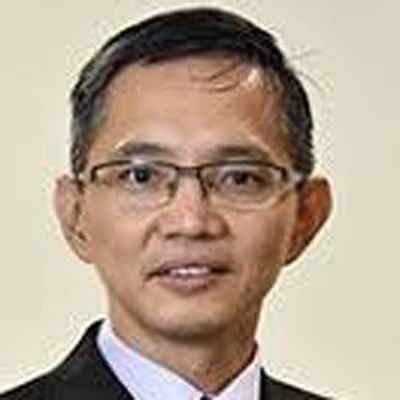

Thuan Tong Tan, Singapore
Clinical Professor Tan is a Transplant Infectious Disease physician. He obtained a PhD in Microbiology after his advanced training in Internal Medicine and Infectious Diseases (ID). He established the ACGME-I senior residency ID program in his hospital in 2012 and was its first Program Director. He served as Head ID at Singapore General Hospital (SGH) from 2014 to 2023. His clinical and academic work focuses on immunocompromised hosts, especially those with hematopoietic and solid organ transplants. He co-directed the SGH COVID-19 pandemic response and served in various national COVID-19-related workgroups during the pandemic, including as deputy co-chair of the MOH COVID-19 Transplantation Services Advisory Committee. He is currently a member of several regulatory committees Singapore's Health Sciences Authority and has served on several advisory boards of industry partners.
In recognition of his contributions to clinical excellence, public health and medical education, Dr Tan has received numerous accolades, including the Outstanding Faculty Award, the Public Administration Medal (Bronze), the SingHealth GCEO Excellence Award (Outstanding Clinician Award), the SingHealth Quality Service Award and the Public Administration Medal (Silver) (COVID-19). In 2025, he was inducted into the Hall of Master Academic Clinicians at Duke-NUS Medical School, underscoring his enduring impact on medical education and infectious disease leadership.
Dr Tan's commitment to clinical excellence is rooted in his core interest in Transplant Infectious Diseases, where he strives to uphold the highest standards of infection prevention, patient safety and posttransplant care.
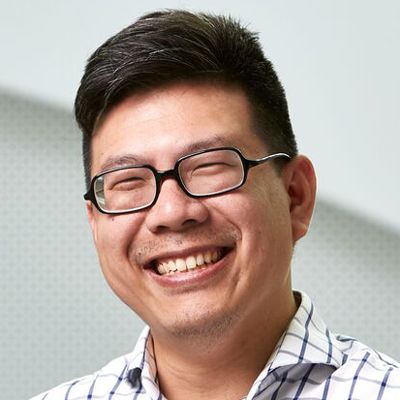

Benjamin Teh, Australia
Prof Benjamin Teh is an infectious diseases physician and researcher at Peter MacCallum Cancer Centre, Melbourne, Australia who has made a series of globally significant, practice-changing contributions to advance management of infections in haematology patients with the introduction of immune-based therapies.
A/Prof Teh has published extensively with 100 peer reviewed publications in leading journals including New England Journal of Medicine, Lancet Infectious Diseases and Clinical Infectious Diseases. Amongst other awards, he is the recipient of the Victorian Premier’s Clinical Researcher Prize for Health and Medical Research, University of Melbourne Chancellor’s PhD Prize for 2018 and the International Immunocompromised Host Society Young Investigator Award 2022 in recognition of research quality and impact. He contributes to the field as an Associate Editor for Transplant Infectious Diseases. A/Prof. Teh leads research, national and international groups including being chair of the Australasian Society for Infectious Diseases Immunocompromised Host Special Interest Group. He has advanced international research practice through development of consensus core reporting dataset for infections in immunocompromised patients with 7 specialist societies including TID section of TTS. In addition, he drives translation of evidence to health policy as a technical immunisation advisor to the Australian Government, ensuring consideration and equity for immunocompromised patients.
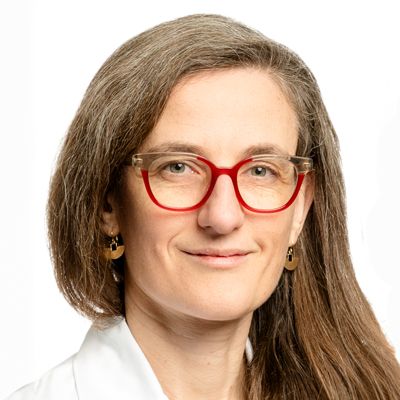

Laura N. Walti, Switzerland
Laura N. Walti, MD an ID physician-scientist from Switzerland, with a broad interest in immunocompromised infectious diseases especially infections in solid organ transplant recipients. After completing her internal medicine and ID training in 2018, she was in charge of transplant infectious diseases at her hospital. She is involved in the Swiss Transplant Cohort Study, where she co-authored several studies including her own broadly recognizes projects on PTLD (doi.org/10.1111/ajt.16423) as well as vaccine preventable infections (DOI: 10.1001/jamanetworkopen.2023.10687) .
She did a Transplant Infectious Diseases Fellowship at UHN (University of Toronto, Toronto Canada) where she worked under the supervision of Prof. Shahid Husain on respiratory infections in lung transplant recipients. The results of their prospective studies on pneumonia (doi: 10.1093/cid/ciae399), as well as Hyperammonemia Syndrome in lung transplant recipients (doi: 10.1093/cid/ciaf078) were recently published.
Since returning to the University Hospital of Berne, Switzerland in 2023 she works as physician-scientist, and is involved in a broad range of projects in immunocompromised hosts. Recently she was elected as the head of the Infectious Diseases Group of the Swiss Transplant Cohort Study where she aims to advance national and international collaborative project to improve the lives of this vulnerable patient population.
Contact
Address
Transplant Infectious Disease
c/o The Transplantation Society
740 Notre-Dame Ouest
Suite 1245
Montréal, QC, H3C 3X6
Canada


